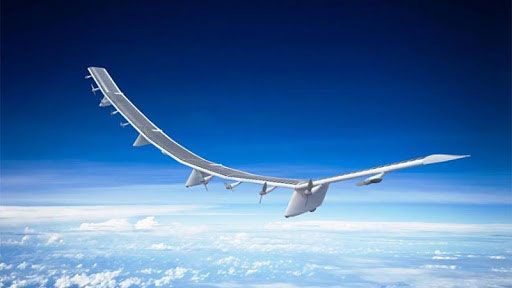
Kigali has taken internet delivery into the Stratosphere with a high-speed internet test in partnership with Japan’s Softbank. The successful test shows that even in the most remote areas, high-speed, affordable internet is possible.
SPECIAL REPORT | BIRD AGENCY | Rwanda is positioning itself as an early contender in a cosmic tug-of-war in which tech titans are lining up to beam high-speed internet across remote parts of Africa.
Rwanda’s interest was made abundantly clear when the country announced on October 20 that it had transmitted a video stream to Japan over HAPS 5G, using an unmanned vehicle positioned in the Stratosphere.
According to RCR Wireless News, “HAPS stands for High-Altitude Platform Station, although they are also sometimes referred to as High-Altitude Pseudo Satellites, and they can come in the form of airships, balloons or fixed-wing drones.”
For the test, Rwanda’s government teamed up with Japanese investor, SoftBank Corp. The successful test involved delivering 5G connectivity on a solar-powered HAPS UAV prototype situated in the stratosphere at a maximum altitude of 16.9 km, for approximately 73 minutes.
The payload performed as expected in demanding atmospheric conditions, highlighting the potential of HAPS UAVs for wireless communication in Africa, according to the Rwandese government.
This followed an earlier stratospheric flight trial from June 2023, where the HAPS UAV prototype was fitted with a mockup payload of similar weight and characteristics.
The high-altitude test showcased real-world applications, notably a 5G-based video call initiated between a test location in Rwanda and SoftBank’s headquarters in Japan.
The ability to use conventional smartphones for this feat showed the system’s compatibility with prevalent devices, as the UAV’s payload operated on standard frequencies.
“This test marks an important step forward in our aim of bridging the digital divide with HAPS and other NTN solutions,” said Junichi Miyakawa, president and CEO at SoftBank.
The race to provide fast and reliable internet services to remote areas on the continent intensified recently with the announcement of Amazon’s Project Kuiper, the rollout of Starlink’s satellite internet offering in Africa, and Safaricom’s agreement with AST SpaceMobile, which offers space-based internet connections on regular mobile devices.
Already, SpaceX’s Starlink is ramping up distribution after tapping online retailer Jumia to drive its satellite internet offering across the continent.
Currently, Africa leads the world in internet growth with the number of internet users growing at an incredible rate throughout the continent.
Between 2018 and 2022, internet use grew in Africa by 44%. This is 10-20% faster than anywhere else in the world.
For instance, internet traffic in Africa has surged over the past decade, with South Africa seeing a 442% increase. Currently, 70% of South Africans are regular internet users, a figure expected to rise to 90% in the next five years.
But with millions of people still lacking internet access due to their remote locations, a new generation of satellites offers a reliable, wallet-friendly way forward.
Satellite providers like Amazon’s Project Kuiper are expected to deploy thousands of satellites in low Earth orbit to provide high-speed, low-latency satellite internet services much like that already offered by Starlink.
Amazon is partnering with Vodafone to extend Project Kuiper’s broadband to global communities with limited access and is considering additional services for businesses, including backup connectivity and support for isolated infrastructure.
Starlink’s recent deal with Jumia will see the retailer sell its satellite terminals and other kits in some African nations, starting with Nigeria in the coming weeks, and subsequently expanding to Kenya and others.
Rwanda’s partnership with Softbank to try out a HAPS 5G offering is a reminder that there are a number of technological opportunities to explore, to offer affordable remote internet delivery.
Softbank’s Miyakawa said the results of the trial were “far beyond” the company’s expectations.
“We are grateful to the Government of Rwanda for their unwavering support and look forward to working with them to study use cases for commercial implementation,” he said.
*****
SOURCE: Seth Onyango, bird story agency
 The Independent Uganda: You get the Truth we Pay the Price
The Independent Uganda: You get the Truth we Pay the Price


